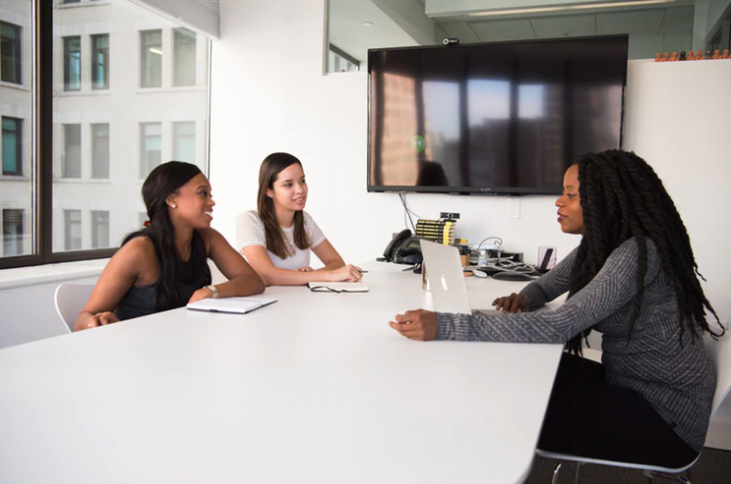So, you have sent in your CV and have been contacted for an interview, hurray! Even if nerves are on your mind, there are plenty of steps to take that can make sure your interview goes smoothly.
Carry on reading to find out the best ways to stand out at your interview, giving you the best chance at securing that job.
So, you have sent in your CV and have been contacted for an interview, hurray! Even if nerves are on your mind, there are plenty of steps to take that can make sure your interview goes smoothly.
Carry on reading to find out the best ways to stand out at your interview, giving you the best chance at securing that job.
Job Interview Type
Work out what you are facing first of all. This is a good question to ask when you get invited to the interview so that you aren’t thrown into the deep end when you arrive.
Many recruiters do now offer a telephone interview; this can be far easier if you were to relocate for the position so are currently living miles away. Commonly, this would be the first stage of the interview process and can be used just to find a bit more about you to see if you are really interested. Make sure you find a quiet location to take the call as it will only distract you if not. Also, the perk of a phone interview is that you can have any preparation in front of you and the interviewer won’t be able to see! Get those cheat sheets ready with preplanned answers!
Alongside a phone interview, a video interview is also easy to set up with the convenience of no travel expenses. All you need is wifi, your laptop (with a webcam) and the link to the call. Again, it is advised to find a quiet location with a plain background. Dress well too! Although it is only over the internet, the interviewer will still take into account your dress code so avoid pyjamas!
The most common interview is face to face. Although this can be seen as more daunting, it is also easier to communicate with the recruiter. Follow these next tips to ensure you are prepared!
Group interviews may also be used. These are more likely to be within the process if you are applying to an internship or graduate position where you may have an assessment day. You need to ensure that your voice is heard but try not to override others; after all, it is a group interview!
Do your homework!
It all starts by finding out more about the role and the company that you have applied for. By looking up the history, missions, company culture and the company’s products or services, you will be making your interview experience a whole lot easier. By familiarising yourself with the company, you will be able to come up with questions to ask in your interview, which will make you seem even more enthusiastic about the role. Research some common questions from your industry that may be asked, so you are at ease if they do come up!
Also, simply re-reading the job description helps you avoid asking any unnecessary questions that have already been answered. You don’t want to turn up to the interview with little knowledge about the role you have applied for. Another top tip is to research some common and hardest questions that you could get asked during the interview, this way you won’t be put on the spot trying to think of an answer if they do come up.
Re-read Your Application
Employer will always be able to find gaps in your CV, and will then base their questions on its content. So it is worth reading through your application to remind yourself what you have already told them. This shows the importance of a good CV, as you don’t want to completely bluff your application, only to find out that you actually need to be able to speak 3 languages and be able to build a computer from scratch…
To prepare for your interview, try to think of examples of all the skills that you have mentioned. This can help for the inevitable questions of “How have you displayed this skill”, that otherwise you may be stuck on. Try and also link your skills to the application so that you know why you are suitable for the job, this will show real-life examples of your skills to your employer.
Plan Your Journey
Being prompt to an interview is always going to work in your favour. So, work out how long it takes to get to the venue, and how you will get there. Leave with plenty of spare time to ensure that if you are delayed or get lost, you still arrive on time.
Running late is sure to make you flustered and lose your focus – so try not to be! However, if you are, you should call them as soon as you realise and explain when you expect to be there, with an apology.
What to wear?
Sometimes, the build-up of working out what to wear for an interview can be more daunting than the interview itself. Make sure that you work out what to wear before the day, just in case you find out your shirt has a hole in it, or you need to pick something up.
If you are completely unsure of what the dress code is, then don’t be afraid to send a friendly email to the recruiter. However, it is best to stick to being smart and professional. After all, it is always better to overdress than underdress! Also, check with housemates or family members for their opinion too.
Although your interview will most likely only consist of a conversation, it won’t harm you to bring a couple of extra things, just in case. Taking a pen and notepad is always handy for taking down notes, not only will this help you remember key information, but it will also show that you are passionate about the job and want to get things right. Also, have a portfolio of work-ready, so that you are even more prepared for the day!

Body Language
Your body language tells a lot about yourself, and let’s be honest; an interviewer will lookout for how you interact in the first 60 seconds. Start with a firm handshake and smile!
An interview is also a two-way street. Listen and answer your interviewer, but also ask your planned questions. If you do find yourself in a group interview, then try to engage with other candidates. The interviewers will pick up on your efforts of appearing friendly and approachable, which will go along way.
Of course, every interview will be different. Even if this is your 10th one this year, or your first ever, following these steps will make you more prepared beforehand. Also, remember to be yourself as it is all valuable experience!
Written by Rebecca Hart, an Online Marketer at StudentJob UK. If you are looking for a job but not sure where to start, then check out StudentJob. Our application tips will help you create an effective CV, cover letter and help you smash interviews!






